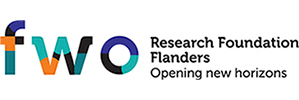United Kingdom
Royal Veterinary College
Expertise
The Royal Veterinary College develops mathematical and statistical transmission models to guide intervention strategies against endemic and emerging tropical diseases. It identifies atypical drugs responses potentially indicative of emerging drug resistance and assists with the design and optimization of clinical trials.
Role in the project
The Royal Veterinary College assists the Starworms project by developing and applying new statistical methods to better quantify individual responses to anthelmintic drugs and to identify atypical responses potentially indicative of emerging drug resistance. These methods will be applicable to data measured from multiple diagnostic approaches, combining information to improve individual-based inference.
Main publications linked to the project
Crellen R et al., 2016. Reduced efficacy of praziquantel against Schistosoma mansoni associated with multiple rounds of mass drug administration. Clin Infect Dis 63:1151-1159.
Frempong KF et al., 2016. Does increasing treatment frequency address sub-optimal responses to ivermectin for the control and elimination of river blindness? Clin Infect Dis 62:1338-1347.
Walker M et al., 2016. New approaches to measuring anthelminthic drug efficacy: parasitological responses of childhood schistosome infections to treatment with praziquantel. Parasit Vectors 9:41.
Walker M et al., 2014. Models for measuring anthelmintic drug efficacy for parasitologists. Trends Parasitol 30:528-537. http://dx.doi.org/10.1016/j.pt.2014.08.004





